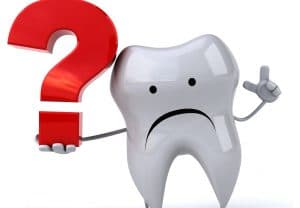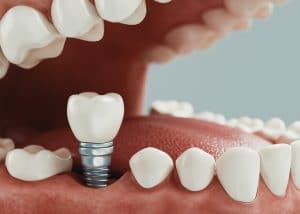 The quality and consistency of your sleep plays a significant role in your overall wellbeing. Unfortunately, you may not always realize when you have trouble sleeping soundly, especially if your sleep is disrupted by obstructive sleep apnea (OSA). Sleep apnea is a chronic sleep disorder that can interrupt your sleeping pattern by forcing you to stop breathing for moments at a time. Today, we explore what this could mean for your sleep and breathing patterns, and why you should take it as a serious concern if you experience symptoms of sleep apnea. (more…)
The quality and consistency of your sleep plays a significant role in your overall wellbeing. Unfortunately, you may not always realize when you have trouble sleeping soundly, especially if your sleep is disrupted by obstructive sleep apnea (OSA). Sleep apnea is a chronic sleep disorder that can interrupt your sleeping pattern by forcing you to stop breathing for moments at a time. Today, we explore what this could mean for your sleep and breathing patterns, and why you should take it as a serious concern if you experience symptoms of sleep apnea. (more…)
When to Start Worrying About Teeth-Grinding
 Most people don’t worry much if they grind their teeth every once in a while. For the most part, they have no reason to worry, unless their habit of grinding their teeth together occurs consistently. Unlike occasional teeth-grinding, chronic teeth-grinding (often a symptom of bruxism) can become the source of several different problems with your tooth structure and oral health. Today, we examine when you should start worrying about teeth-grinding, and why it’s important to seek treatment to stop if it starts to get out of control. (more…)
Most people don’t worry much if they grind their teeth every once in a while. For the most part, they have no reason to worry, unless their habit of grinding their teeth together occurs consistently. Unlike occasional teeth-grinding, chronic teeth-grinding (often a symptom of bruxism) can become the source of several different problems with your tooth structure and oral health. Today, we examine when you should start worrying about teeth-grinding, and why it’s important to seek treatment to stop if it starts to get out of control. (more…)
Are Your Headaches Caused by TMJ Disorder?
 When you develop a headache that keeps recurring and getting worse, your oral health might not be the first thing you consider as the main cause of it. However, for people who experience TMJ disorder, chronic headaches and migraines can be just one of several symptoms that can be traced back to the malfunction in their jaw joints. Today, we examine what TMJ disorder can mean for your oral health and more, and how to determine if it’s the source of your chronic headaches and other pains. (more…)
When you develop a headache that keeps recurring and getting worse, your oral health might not be the first thing you consider as the main cause of it. However, for people who experience TMJ disorder, chronic headaches and migraines can be just one of several symptoms that can be traced back to the malfunction in their jaw joints. Today, we examine what TMJ disorder can mean for your oral health and more, and how to determine if it’s the source of your chronic headaches and other pains. (more…)
The Important Role of Routine Checkups and Cleanings
 There’s more to good dental hygiene than then care that you put into it at home. For dental hygiene to be effective, it has to include a routine of professional dental checkup and cleaning appointments with your dentist. While you can clean most of the harmful bacteria from your teeth when they form plaque, only your dentist or dental hygienist can remove its calcified form, tartar. Also, your dentist must keep a consistent eye on your teeth and oral tissues to ensure that they remain healthy and free of disease. (more…)
There’s more to good dental hygiene than then care that you put into it at home. For dental hygiene to be effective, it has to include a routine of professional dental checkup and cleaning appointments with your dentist. While you can clean most of the harmful bacteria from your teeth when they form plaque, only your dentist or dental hygienist can remove its calcified form, tartar. Also, your dentist must keep a consistent eye on your teeth and oral tissues to ensure that they remain healthy and free of disease. (more…)
What Dental Hygiene Means to Your Smile Long-Term
 It’s no secret that good dental hygiene is the cornerstone of keeping your smile healthy in the long run. When your hygiene routine is consistently good, it can help you avoid many different potential concerns that could increasingly threaten your oral health, such as tooth decay, gum disease, and more. Today, we take a closer look at what good dental hygiene can mean for your smile long-term, and what it means to stick to a good hygiene routine every day. (more…)
It’s no secret that good dental hygiene is the cornerstone of keeping your smile healthy in the long run. When your hygiene routine is consistently good, it can help you avoid many different potential concerns that could increasingly threaten your oral health, such as tooth decay, gum disease, and more. Today, we take a closer look at what good dental hygiene can mean for your smile long-term, and what it means to stick to a good hygiene routine every day. (more…)
What Makes a Tooth a Good Candidate for Bonding?
 Addressing a tooth problem can mean a variety of things. Even when the solution seems obvious, there may be a way to achieve optimal results in a more lifelike or minimally invasive manner. For example, cosmetic tooth bonding is often a surprisingly effective solution for addressing a wide range of concerns with the health, integrity, or appearance of one or more teeth. Today, we examine a few times when a tooth makes a good candidate for tooth bonding, and how the procedure can help you restore or improve your tooth with optimal results. (more…)
Addressing a tooth problem can mean a variety of things. Even when the solution seems obvious, there may be a way to achieve optimal results in a more lifelike or minimally invasive manner. For example, cosmetic tooth bonding is often a surprisingly effective solution for addressing a wide range of concerns with the health, integrity, or appearance of one or more teeth. Today, we examine a few times when a tooth makes a good candidate for tooth bonding, and how the procedure can help you restore or improve your tooth with optimal results. (more…)
3 Things Veneers Let You Do for Your Smile
 Porcelain veneers have become popular as a cosmetic dental treatment for several different reasons. When it comes to results, porcelain veneers can often offer the most lifelike appearance and durability when it comes to improving your healthy, natural tooth structure. The thin nature of veneers and the minimally invasive nature of their placement means they’re also preferable in helping many patients preserve more of their tooth’s natural structure. Today, we examine three things that veneers are able to achieve for your smile thanks to their unique, high-quality construction and highly customizable appearance. (more…)
Porcelain veneers have become popular as a cosmetic dental treatment for several different reasons. When it comes to results, porcelain veneers can often offer the most lifelike appearance and durability when it comes to improving your healthy, natural tooth structure. The thin nature of veneers and the minimally invasive nature of their placement means they’re also preferable in helping many patients preserve more of their tooth’s natural structure. Today, we examine three things that veneers are able to achieve for your smile thanks to their unique, high-quality construction and highly customizable appearance. (more…)
Important Things About Dental Implant Restorations
 Replacing lost teeth is important for restoring and preserving your smile after tooth loss, but not all tooth replacement options can fully restore the functions of your lost teeth. For example, a custom-designed restoration that’s supported by one or more dental implant posts may be the only way to address some of the more complex concerns resulting from the loss of your natural teeth roots. Today, we examine a few of the more significant implications of this, and why a dental implant restoration might offer the most lifelike solution for rebuilding your smile. (more…)
Replacing lost teeth is important for restoring and preserving your smile after tooth loss, but not all tooth replacement options can fully restore the functions of your lost teeth. For example, a custom-designed restoration that’s supported by one or more dental implant posts may be the only way to address some of the more complex concerns resulting from the loss of your natural teeth roots. Today, we examine a few of the more significant implications of this, and why a dental implant restoration might offer the most lifelike solution for rebuilding your smile. (more…)
Why Preventing Tooth Loss Is Worth It
 Everyone’s smile and oral health needs are unique, which is why dental treatment is typically customized to meet each patient’s specific needs. In most cases, however, the ultimate goal of receiving quality dental care is the same – to help everyone preserve their healthy, natural smiles and avoid the loss of one or more teeth. This is an important goal for many different reasons, not the least of which is the fact that you won’t grow a tooth back once it’s been lost. Rather than having to replace the tooth to restore your smile, it’s better for your immediate and long-term oral health to do all you can to prevent tooth loss from occurring. (more…)
Everyone’s smile and oral health needs are unique, which is why dental treatment is typically customized to meet each patient’s specific needs. In most cases, however, the ultimate goal of receiving quality dental care is the same – to help everyone preserve their healthy, natural smiles and avoid the loss of one or more teeth. This is an important goal for many different reasons, not the least of which is the fact that you won’t grow a tooth back once it’s been lost. Rather than having to replace the tooth to restore your smile, it’s better for your immediate and long-term oral health to do all you can to prevent tooth loss from occurring. (more…)
Extracting and Replacing a Tooth to Save Your Smile
 Common tooth concerns, like tooth decay or fractures and breaks, are easily treatable with the right restorative dental treatment. For instance, a custom tooth filling or dental crown can help your tooth regain its structural integrity and restore its ability to function properly after its structure has been damaged. However, there may be some situations that can affect your tooth severely enough to make restoring it impossible. In such cases, the best solution for restoring and preserving the rest of your smile may be to extract the tooth and replace it with a custom-made restoration. (more…)
Common tooth concerns, like tooth decay or fractures and breaks, are easily treatable with the right restorative dental treatment. For instance, a custom tooth filling or dental crown can help your tooth regain its structural integrity and restore its ability to function properly after its structure has been damaged. However, there may be some situations that can affect your tooth severely enough to make restoring it impossible. In such cases, the best solution for restoring and preserving the rest of your smile may be to extract the tooth and replace it with a custom-made restoration. (more…)


